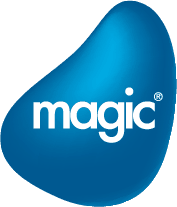Microsoft’s quest to win back the hearts and minds of consumers with Windows 8 may have hurt its credentials with enterprises, industry onlookers have asserted.
The launch of the new OS today provoked long late-night queues along Tottenham Court Road as Currys & PC World opened for business at 12.01am. But its popularity with consumers may come at the expense of uptake in the commercial world, according to a range of IT sector experts.
David Akka, UK managing director of integration software vendor and Microsoft ecosystem partner Magic Software, characterised Windows 8 as “a huge departure” and questioned whether Microsoft has shifted its focus too radically.
“This big redesign means it looks as if Microsoft is banking on winning back share by capitalising on the consumerisation of IT, and shifting its focus from the enterprise to win the loyalty of the consumer market,” he said. “Such a move could alienate the existing generation of Microsoft devotees, especially in the enterprise, where Microsoft will need to drive sales through legacy devices.”
David Blackman, general manager of northern Europe for backup vendor Acronis, claimed that, while it may not be an immediate runaway hit, Windows 8 might enjoy some success with businesses gearing up for a bring-your-own-device (BYOD) rollout.
“The release of Windows 8 today may not lead to mass adoption in the near future by enterprises still in the process of migrating to Windows 7, but it presents a powerful opportunity for those grappling with how to integrate mobile devices and BYOD into their IT infrastructure,” he explained.
Hybrid approach
Chris Lim, Microsoft practice manager at Trustmarque, one of the vendor’s biggest UK partners, saluted Windows 8 and the Surface tablet, also launching today, for “continually pushing the boundaries of business software and introducing the latest technology to the workplace”. He added that the new OS shows the vendor is “taking consumerisation and user demands seriously”.
“For businesses, the elephant in the room is XP support ending in April 2014. However, the focus should be on understanding where Windows 8 fits into current desktop plans,” said Lim. “What Microsoft’s Windows 8 and Surface tablet launch means for businesses is that they should evaluate whether they have a strategy and ability to support a hybrid environment of both Windows 7 and 8.
“Most organisations have current plans for a Windows 7 enterprise desktop and have been working hard on application rationalisation, packaging and app virtualisation. Will Windows 8 stop these plans? No. May they need to ensure these plans are flexible enough to support Windows 8 devices too? Faster than you think.”
Robert Rutherford, managing director of Dorset-based consultancy and services firm QuoStar Solutions, believes that “in terms of user experience, [Windows 8] is completely different” to its predecessors. He warns Microsoft that “in general, people do not like change”.
“The general rule of thumb will be, stick with Windows 7 if you are already there, no matter what size of business,” added Rutherford. “If you are using tablets – or want to use [them] – then you may want to try Windows 8, but still leave the rest of your PC estate on Windows 7.
“Hardware compatibility has been drastically improved on the new version so when the time comes to switch, virtually any PC or laptop that will run Windows 7 will also run Windows 8. In the meantime, it is a solid platform and you do not need to move. I would still keep buying PCs and laptops with Windows 7 for at least the next 18 months to two years while they iron out the bugs.”
A lasting legacy?
Angela Eager, research director at TechMarketView, writes in the analyst’s UKHotViews newsletter that the short-term outlook for Windows 8 is decidedly uncertain. Enterprise hardware resellers should not bank on the operating system’s launch kick-starting refresh cycles, she warns.
“Early sentiment that Windows 8 on the desktop gives a poor experience bodes ill for the legacy upgrade sector of the market,” she says. “Consider that in conjunction with sales to businesses being tied to PC refresh cycles, and potentially further delayed by concerns about costs related to training and productivity declines as users adjust to the new interface, and the immediate prospects in the enterprise sector are far from bright.
“It is a long-term game, however – the less-challenging Windows 7 upgrade cycle was a long one; the important difference is that Windows 8 is launching into a declining desktop market.”
Click for the online version
